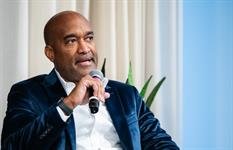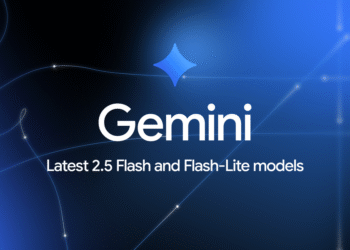
Plus: Major Amazon Web Services outage handicapped the internet; AI is scapegoat for layoffs.
It’s not surprising things ended this way.
The New York Times’ initial reporting about Salesforce CEO Marc Benioff’s call for National Guard troops to be called into San Francisco ended with a vignette sure to send shivers down any PR pro’s spine:
At the end of the interview, he turned to a public relations executive. He could be heard asking why her mouth was wide open and if he had said anything he shouldn’t have.
“What about the political questions?” he asked. “Too spicy?”
Then he hung up.
During that same interview, Benioff also said that though many believed him a liberal because of his fundraising for Hillary Clinton in 2016, he was actually a longtime Republican voter who turned independent. Now, he says he avidly supports Trump.
But just days after that interview, he walked back at least some of those statements after leaders in both San Francisco and tech roundly condemned his calls for the National Guard.
In a post on X, Benioff wrote:
Having listened closely to my fellow San Franciscans and our local officials, and after the largest and safest Dreamforce in our history, I do not believe the National Guard is needed to address safety in San Francisco. My earlier comment came from an abundance of caution around… pic.twitter.com/7TRdTu7hdq
— Marc Benioff (@Benioff) October 17, 2025
Why it matters: Many business leaders today are attempting to walk a line between embracing a polarizing and demanding president and not alienating customers and employees from across the political spectrum.
Many in tech have been more open about their support for Trump than in other industries, with X and xAI CEO Elon Musk literally becoming part of the administration. Perhaps Benioff thought he could forge a similar path forward.
But his quick retreat from those politics show the audacious path Musk forged doesn’t work for most other people.
One major issue here is the cognitive dissonance between the identity Benioff has publicly forged over the years and what seems an abrupt about-face to many.
Besides his Clinton fundraiser, he also advocated to task businesses – including his own – to fund homelessness programs. Suddenly announcing full-throated support for Trump and calling troops into the city where he built his business seemed shocking to many, intensifying the backlash from state and local officials, as well as others within the tech industry, including his long-time friend, venture capitalist Ron Conway, and Laurene Powell Jobs, philanthropist and widow of Steve Jobs. An open letter from “Salesforce employees, alumni, community members, tech workers, San Francisco residents, and our allies” called on Benioff to retract the remarks.
His apology was fairly tepid, saying it came from “an abundance of caution” surrounding the company’s San Francisco Dreamforce conference. But one thing’s clear: Even with an apology, Benioff has staked out an identity it will be hard for him to fully back away from.
If only he’d listened to that poor PR exec.
Editor’s Top Reads
- A major outage of Amazon Web Services, which powers much of the internet we all rely on, took down websites and apps including Reddit, the New York Times, the McDonald’s app and websites relating to the British government, CNBC reported. Services were affected for about an hour and a half from about 2 a.m. to 3:30 PDT. During the outage, AWS’ statements came in technical language geared toward website administrators, delivered through the company’s service health dashboard. Because the services are so integral not only to technical professionals but also anyone who accesses the internet, a more layman friendly series of statements might have been helpful in keeping the public informed and rebuilding confidence in the service.
- Almost every week, we see headlines that another company is laying off employees to pivot to AI or because of productivity gains made by AI. But despite these claims in layoff notices, press releases and statements to employees, research doesn’t support that AI is really behind mass layoffs. At least not yet. Indeed, many of those pointing to AI as the reason for job reductions, such as Klarna and Duolingo, over hired during the pandemic and may have needed a convenient scapegoat to reduce headcount to more sustainable levels. But that could have long-term impacts on employee and public trust in these companies. Publicly blaming AI for job cuts, even if that’s not the case, could make stakeholders feel there’s less human involvement and oversight in the company – or could make leery employees look for companies where they feel safe.
- Have you ever stared at a long-dormant X account with a great name – maybe your business’ name – and wished you could get your hands on it? Now, you may be able to. For a price. Premium Plus and Premium Business X subscribers will soon have access to the X Handle Marketplace. Some will be available for free, which may include “full names, multi-word phrases, or alphanumeric combinations,” The Verge reported. But to get the really good stuff, such as “short, generic, or culturally significant names,” you’ll need to pay. Think $2,500 to over $1 million, depending on desirability. And if you ever stop paying for X Premium, that sweet new handle will revert to X’s control. This is notable for two reasons: First, you may be able to grab a great handle to meet your brand’s needs. But even if you aren’t in the market, you need to keep some level of activity on existing accounts in order to avoid it going on the X auction block. Even if you’ve moved away from X, it may be worth occasionally logging in to ensure your account remains active. It’s not clear just how long between logins is considered dormant, but X recommends every 30 days – of course, to help their monthly active user statistics.
Allison Carter is editorial director of PR Daily and Ragan.com. Follow her on LinkedIn.
The post The Scoop: Marc Benioff walks back calls for National Guard in San Francisco appeared first on PR Daily.














